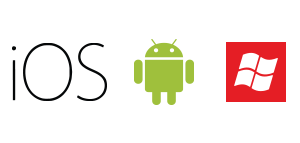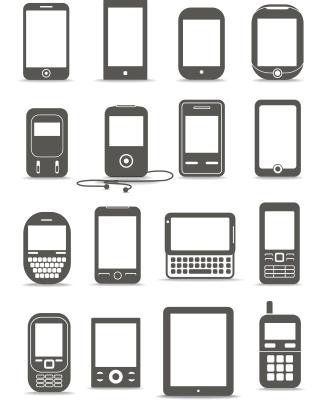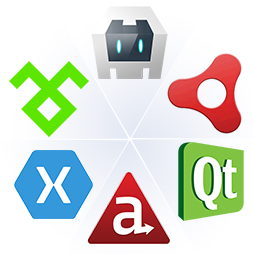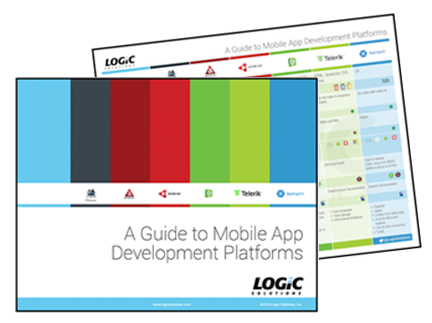Multiplatform and Multidevice
Among the many decisions you’ll make about your mobile app are two that concern deployment and distribution. Namely, which devices should run your app, and at what sizes.
Platform
The most popular mobile platforms are arguably Android and Apple. Windows Mobile is struggling to catch up, and BlackBerry has all but gone away, but there are even more to consider. For example, if your app involves eReading, you may need to look at Kindle or Nook. And speaking of Kindle, don’t count out Amazon’s other products.
Logic has developed on many mobile app platforms, and our experts are happy to help you select which is right for your project.


Devices
Once you’ve chosen a platform, you’ll want to select devices and device sizes. Apple is the easiest because it involves only one manufacturer. Your choices are iPod, iPhone, and iPad (regular and mini) varieties.
When you get out of the Apple sphere, things become a bit less clear. Other platforms have multitudes of hardware manufacturers. For example, Samsung, Motorola, Google, LG, Nokia, HG, and Amazon all make smartphones and tablets running Android operating systems. In addition, screen sizes and resolutions are not necessarily consistent across manufacturers.
Don’t worry, though. We can help you with this decision, too. We have tested and deployed apps on multiple device types. Check out our work on Omaha Steaks’ Steak Time to see an example.
Development Frameworks
Our teams have employed several mobile development frameworks to complete projects on time and on budget including PhoneGap/ Adobe Cordova, Appcelerator Titanium, Adobe Air, Qt, Telerik, and Xamarin.
If you’re interested in more information on these development platform frameworks, you can download our quick guide below.


FREE DOWNLOAD: A Guide to Mobile App Development Platforms
Compare the pros and possible limitations of top six mobile development tools on the market.
Download Now